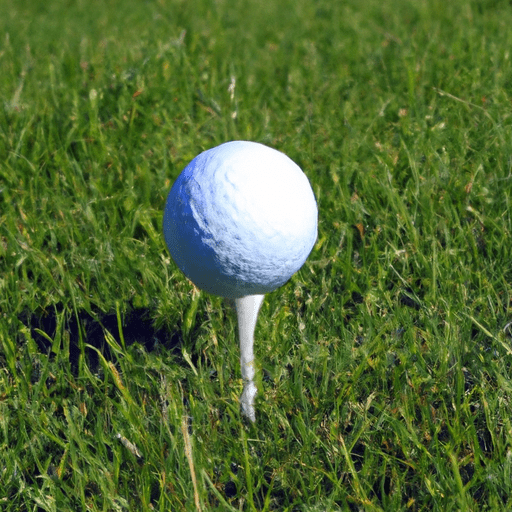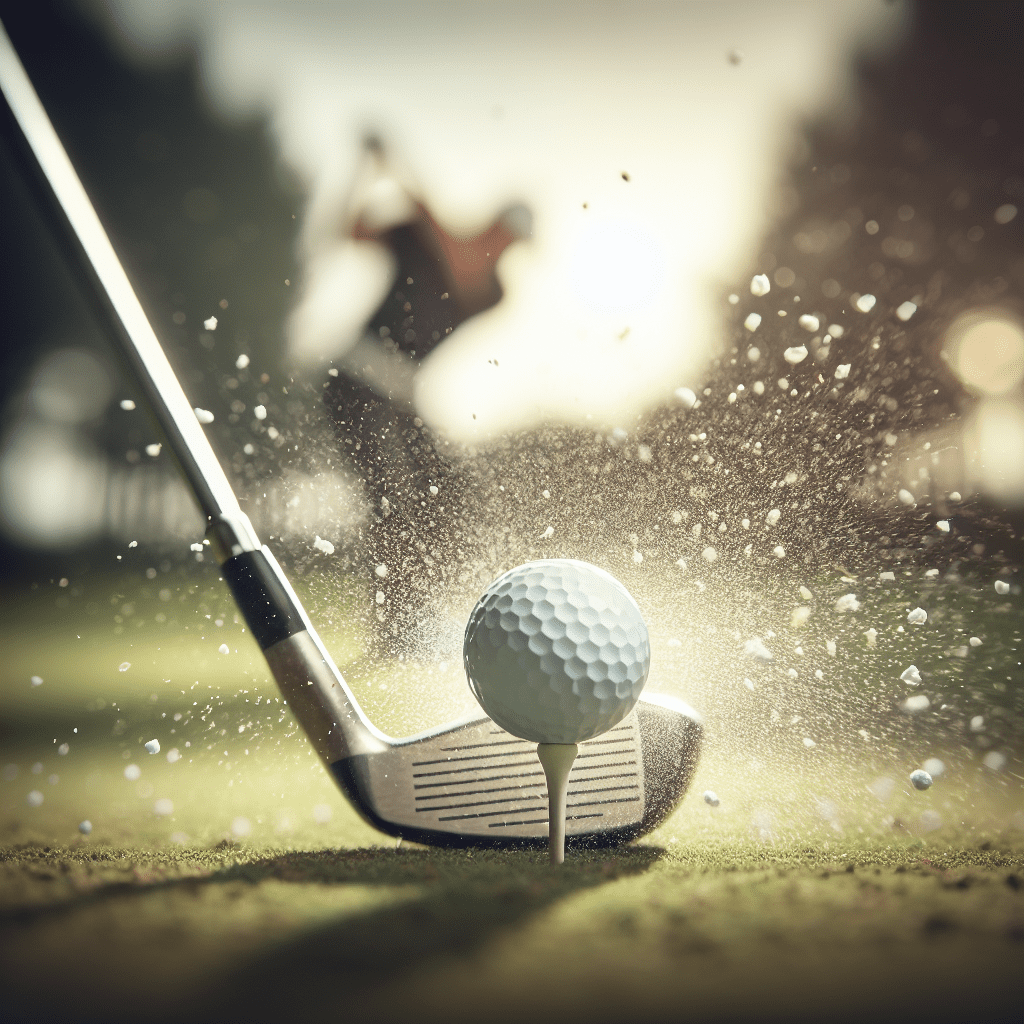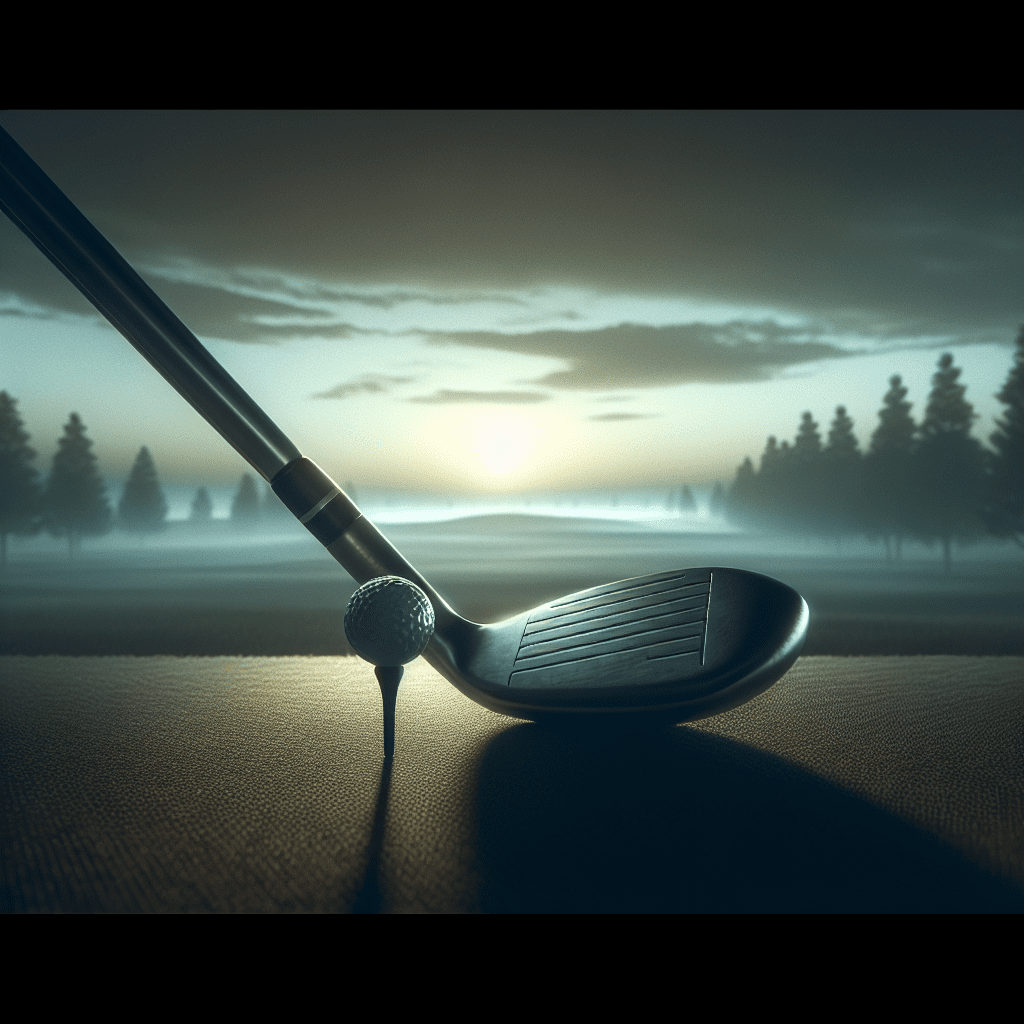So, picture this: you're ready to make that perfect golf swing, the crowd is watching, and then… oops! You accidentally nudge your golf ball while getting into position. It happens to the best of us, but what should you do in this situation? Don't worry, we've got you covered. In this article, we'll give you some friendly advice on what steps to take if you accidentally move your ball while addressing it on the golf course. Let's get you back on track in no time!
Assess the Movement
Evaluate the degree of ball movement
When you accidentally move your ball while addressing it, the first step is to assess the extent of the movement. Did it merely shift slightly, or did it roll a couple of yards away? Understanding the degree of movement will help you determine the appropriate action to take.
Determine if the ball needs to be replaced
Next, consider whether the ball needs to be replaced. According to the rules of golf, if the ball is accidentally moved while being addressed, it must be replaced. However, if the ball has shifted significantly, you may need to consult the rules or seek guidance from a fellow player or official to determine if any penalties apply.
Understand the rules regarding accidental movement
Maintain Honesty
Admit to accidentally moving the ball
Honesty is paramount in golf, so if you accidentally move the ball while addressing it, it's crucial to admit your mistake. Trying to hide or cover up the movement can lead to further penalties and damage your integrity. By acknowledging the accidental movement, you demonstrate respect for the game and your fellow players.
Avoid trying to hide or cover up the movement
Rather than attempting to conceal the accidental movement, it is best to address the situation openly and honestly. Hiding or covering up the movement will only complicate matters and potentially lead to more severe penalties. Remember that golf is a game of integrity, and admitting your mistakes is the right way to handle them.
Act with integrity on the course
Integrity is one of the core principles of golf, and it applies to every aspect of the game, including addressing accidental ball movement. Act with integrity by admitting your mistake, following the proper procedures, and accepting any penalties that may be incurred. By doing so, you not only uphold the values of the game but also set an example for others to follow.
Reposition the Ball
Place the ball back in its original position
After admitting the accidental movement and understanding the rules, it's time to reposition the ball. Carefully place the ball back in its original spot as accurately as possible, taking note of its position before the movement occurred. The aim is to maintain fairness and ensure that the course remains unchanged.
Ensure it is placed as accurately as possible
When placing the ball back in its original position, accuracy is key. As a golfer, you should strive to reposition the ball as close to the original spot as possible. This ensures that the conditions you faced when addressing the ball are not altered by the movement.
Use a marker to mark the original position if needed
In situations where it may be challenging to accurately remember the original position, it is helpful to use a marker to indicate the spot. This marker can be a tee, a small coin, or any other object that won't interfere with the game. By marking the original position, you eliminate any potential disagreements or confusion later on.
Penalty or No Penalty
Know the different situations that may result in a penalty
Accidental ball movement can lead to penalties, but it's important to understand the various situations where penalties are enforced. Familiarize yourself with the rules that govern accidental movement, as they can differ depending on the circumstances.
Consult the rules or seek guidance from a fellow player or official
If you're unsure whether a penalty applies, don't hesitate to consult the official rules of golf or seek guidance from a fellow player or official. They can provide necessary clarification and ensure you handle the situation correctly. It's always better to ask for guidance than to risk making a wrong decision.
Understand when there is no penalty for accidental movement
Not all accidental movements of the ball result in penalties. It's essential to know the instances where there is no penalty. For example, if the ball is moved by an outside agency, such as an animal or course maintenance equipment, there is typically no penalty incurred.
Without Penalty
If the ball is accidentally moved by the player
In some situations, accidental movement by the player does not result in a penalty. For example, if you accidentally nudge the ball while addressing it, but it remains within the same position, you can simply reposition it without incurring a penalty. However, it's crucial to follow the proper procedure of repositioning the ball accurately.
When ball movement results from an outside agency
If the ball is moved by an outside agency, such as a gust of wind or an animal, there is generally no penalty. However, you must carefully reposition the ball back to its original spot, maintaining its original conditions as much as possible.
When the movement is caused by natural forces
Accidental movement caused by natural forces, such as the slope of the terrain or a divot underneath the ball, also does not warrant a penalty. However, you must still reposition the ball accurately and ensure fairness in the game.
With Penalty
If the ball is accidentally moved by a player or a player's partner
Accidental movement caused by a player or a player's partner typically incurs a penalty. If you or your partner accidentally move the ball while addressing it, you must replace it in its original position and add one stroke to your score. Following the specific penalty procedures ensures fair play.
When the player's club accidentally hits and moves the ball
Accidental movement resulting from the player's club accidentally hitting the ball also leads to a penalty. If you inadvertently strike the ball with your club while addressing it, you must replace it in its original position and add one stroke to your score. This penalty serves to maintain the integrity of the game.
When the ball is deemed to have moved from its original spot
In some cases, the movement of the ball is deemed to have happened even if it was not observed directly. For example, if the ball is on an uphill slope and it rolls down due to gravity after you address it, you may incur a penalty for the movement. Consult the rules or an official to determine the proper course of action.
Replace the Ball
Place the ball back in its original position after a penalty
If you incur a penalty for accidental movement, it's essential to place the ball back in its original position promptly. This ensures fairness and maintains the integrity of the game.
Understand that the ball must be set right where it was
When replacing the ball after a penalty, it must be set precisely in the spot it was before the accidental movement occurred. Failure to do so may result in further penalties or disputes on the course.
Ensure proper procedure is followed when replacing the ball
Follow the correct procedure for replacing the ball after a penalty. This includes accurately placing the ball, ensuring it stays stationary until your next stroke, and informing your fellow players of the penalty stroke added to your score. Adhering to these procedures prevents any confusion or unfair advantage during the game.
Different Game Formats
Be aware of variations in rules across different game formats
Different game formats in golf may have their specific rules and procedures regarding accidental movement. Make sure you understand the variations and requirements before playing a particular format. This knowledge will help you handle accidental movement situations correctly without incurring unnecessary penalties.
Understand the specific penalties and procedures for each format
In addition to different rules, various game formats may impose specific penalties and procedures for accidental movement. Whether you're playing stroke play, match play, or a team event, familiarize yourself with the specific penalties and procedures associated with that format.
Consult the specific rules governing the game being played
When participating in a golf competition or playing at a specific course, it's essential to consult the specific rules governing that game or facility. These rules may provide additional guidance or exceptions regarding accidental movement. Staying informed and aware ensures a fair and enjoyable experience for all players.
Seek Clarification
Ask for clarification from a fellow player or official when in doubt
If you find yourself unsure about how to handle accidental ball movement, don't hesitate to ask for clarification. Reach out to a fellow player or an official who can provide guidance based on the rules of golf. Seeking clarification ensures that you make informed decisions and maintain the fairness of the game.
Consult the official rules of golf for specific situations
Stay updated on rule changes and amendments
Learn from Experience
Use the incident as a learning opportunity
Every golfer experiences accidental ball movement at some point. Instead of dwelling on the mistake, use it as a learning opportunity. Reflect on the circumstances surrounding the incident and consider what actions or adjustments you could make to prevent similar occurrences in the future.
Take note of the circumstances and what caused the movement
To learn from the experience, it's important to take note of the circumstances and factors that led to the accidental movement. Did you have a shaky stance? Was it windy? By understanding the causes, you can work on improving your technique, focus, or adaptability to prevent such incidents from happening again.
Strive to prevent similar incidents in future games
After reflecting on the accidental movement, make a conscious effort to prevent similar incidents in future games. Whether it's by improving your setup, maintaining focus, or adapting to changing conditions, applying the lessons learned will help you avoid unnecessary penalties and maintain the integrity of the game.
Accidental ball movement can be a challenging situation to navigate in golf. However, by assessing the movement, maintaining honesty, repositioning the ball accurately, understanding penalties, and seeking clarification when needed, you can handle these situations with confidence and integrity. Remember to learn from each experience and strive to prevent similar incidents in future games. Golf is a game of integrity, and how you handle accidental ball movement reflects your commitment to fair play and sportsmanship.






